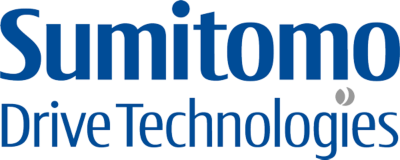When rapid international growth in several countries in EMEIA (Europe, the Middle East, India & Africa) started to present Sumitomo Drive Technologies with a range of challenges around employee data, it quickly became clear to the company’s HR and IT leaders that an entirely new approach was needed.
According to Joris Blommaerts, chief human resources officer EMEIA, “We were facing several major challenges around our ability to address the growing need for actionable data and insights, including the need to be GDPR compliant. It wasn’t just that the data was more diverse – there was also far more of it. To make the need for change yet more urgent, our processes were based on Excel at the time – or even pen and paper. This made processing employee data enormously time-consuming.”
Supercharging the business through real-time data and regional reporting.
This was especially concerning at a time when Sumitomo Drive Technologies EMEIA was planning to shift from a product-oriented way of working to a market-focused one. This required the breaking down of silos to satisfy customer demand for new, energy-efficient products created by bundling components from different business units across the world.
Additionally, the EMEIA organisation faced another challenge: effectively managing multiple HR backgrounds that encompass different levels of maturity. Workday provided essential support in addressing this business requirement.
As Blommaerts continues, “That meant being properly able to leverage the benefits of digital disruption in one of the world’s most traditional industries, which in turn required access to the real-time data and regional reporting that we simply didn’t have at the time.”
Blommaerts and colleagues also understood that the organisation needed a better overview of internal skills already in the workforce, and an enhanced ability to identify and recruit the talent required for the years ahead. “We soon realised that only Workday offered us the technology capable of the transformational change and operational reform we needed,” Blommaerts says. “So we implemented Workday Human Capital Management as our new solution – and this has quickly given us the reorganisation and fluid adaptability we need to build and manage a fast-growing, multigenerational workforce.”
Only Workday offered us the technology capable of the transformational change and operational reform we needed.
Joris Blommaerts, Chief Human Resources Officer EMEIA
Great user experience and ease of configuration.
Sumitomo Drive Technologies EMEIA’s experience with Workday to date has been extremely positive. As Blommaerts explains, “First and foremost, digitisation has allowed us to improve efficiency by eliminating repetitive work, which has enabled us to divert time towards value-adding activities that benefit individuals and the organisation as a whole. This is also reflected in the greatly improved self-service Workday offers, streamlining and accelerating transactional activities.”
The ease of self-service is also embodied in the system’s great user experience and ease of configuration. According to Blommaerts, “We hardly had to train our people: following a short introduction, the intuitive nature of Workday made it easy to start working with it straightaway. The same is true of configuration – it’s so easy that we can now onboard entire new companies in just a couple of weeks.”
Workday has also broken down silos to facilitate intra-company collaboration, connecting individuals working on similar projects. This is enabling employees to focus more tightly on meeting customer needs and accelerating the transition to the energy-efficient and sustainable solutions the company’s markets are increasingly looking for.
Improved team diversity and product quality.
The deployment of Workday Human Capital Management has had wider and deeper positive impacts across the workforce than initially expected.
One impact is the greatly improved change-management facility across the business, which is allowing the company to focus on leadership development and expanding the expertise of its workforce. As Blommaerts explains, “This is empowering a significant cultural change at the company, from one mainly populated by mechanical specialists to one with growing numbers of application experts.”
It’s also driving significant improvement on the opportunity for team members to fulfil personal objectives. “One of my goals is to see people find their true passion in the professional environment, and then evolve towards fulfilling that goal,” Blommaerts continues. “I see Workday as a huge enabler in that sense, helping us to fulfil our mission.”
Workday is also helping the company simultaneously build more diverse local teams, while enabling people to explore their personal horizons. “If we can detect through Workday that people want to have the experience of working abroad, we can have a full overview of where people want to move,” says Blommaerts. “That will improve the diversity of our teams and the quality of the solutions they develop together.”
Digitisation has enabled us to divert time towards value-adding activities that benefit individuals and the organisation as a whole.
Joris Blommaerts, Chief Human Resources Officer EMEIA
Continuous learning, competency development and succession planning.
Now that Workday has helped Sumitomo Drive Technologies EMEIA achieve better communication and reporting thanks to new levels of transparency relating to its staff and management, the next step for the HR function is to expand its internal Workday team.
Blommaerts explains, “Additional capacity will enable us to make even more data available to managers, so they have the insight needed to do more work with their teams on compensation, development and internal mobility.”
Since deployment, the HR function overall has been able to dedicate more time and resources to fostering a feedback culture that in turn has led to a range of workforce optimisation initiatives, including more support for continuous learning, competency development, succession planning and more. As a result, Workday is directly improving employees’ level of trust in the business.
“Just as important, it means we now have a great overview of exactly where our talent lies,” Blommaerts adds. “That means the company can make better people decisions, and facilitate internal moves based on an individual’s performance and personal aspirations. And that’s great news for everybody.”

